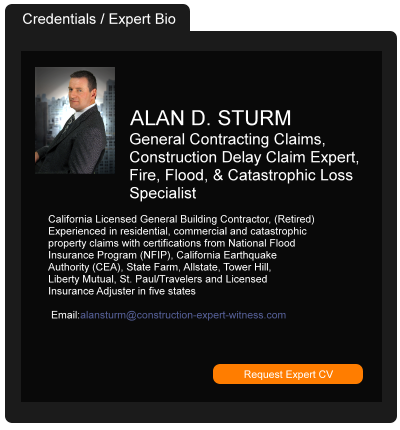Miller Act Statute of Limitations and Equitable Tolling
July 11, 2022 —
David Adelstein - Florida Construction Legal UpdatesWhen it comes to a Miller Act payment bond claim, there is a one-year statute of limitations—“The Miller Act contains a statute of limitations provision that requires actions to ‘be brought no later than one year after the day on which the last of the labor was performed or material was supplied by the person bringing the claim.’” U.S. f/u/b/o Techniquex Specialty Flooring, Inc., v. Philadelphia Indemnity Ins. Co., 2022 WL 169070, *3 (M.D.Penn. 2022) (citing the Miller Act).
There is an argument, albeit a difficult one, to support an equitable tolling of the one-year statute of limitations. This would be an argument filed when the one-year statute of limitations expires, but there is reason for missing the statute of limitations caused typically by the overt misleading of the defendant (surety/bond-principal):
“Equitable tolling functions to stop the statute of limitations from running where the claim’s accrual date has passed.” “Equitable tolling is appropriate in three situations: (1) when the defendant has actively misled the plaintiff respecting the facts which comprise the plaintiff’s cause of action; (2) when the plaintiff in some extraordinary way has been prevented from asserting his rights; and (3) when the plaintiff has timely asserted his rights in the wrong forum.” The first ground for equitable tolling“appears to be the same, in all important respects” to equitable estoppel, which “excuses late filing where such tardiness results from active deception on the part of the defendant” and “what courts describe as ‘equitable tolling’ is encompassed by the latter two parts of our Circuit’s doctrine.” The extraordinary circumstances standard may be met “where the defendant misleads the plaintiff, allowing the statutory period to lapse; or when the plaintiff has no reasonable way of discovering the wrong perpetrated against her …”
Tehniquex, supra, at *5 (internal citations omitted).
Read the court decisionRead the full story...Reprinted courtesy of
David Adelstein, Kirwin Norris, P.A.Mr. Adelstein may be contacted at
dma@kirwinnorris.com
Builders Association Seeks to Cut Down Grassroots Green Building Program (Guest Post)
October 04, 2021 —
Christopher G. Hill - Construction Law MusingsFor this week’s year end Guest Post Friday here at Musings, we welcome Michael Anschel. Michael is the owner of Otogawa-Anschel Design-Build, a member of BATC, lead the development of and serves as a board member to MN GreenStar, the CEO of Verified Green, Inc., and writes the green blog for Remodeling Magazine Online.
If you have been following the sad state of affairs in Minnesota recently (no not the elections) you might be scratching a bald spot on your head in amazement. To my knowledge it is the only state in which the local builders association [ www.batconline.org ] has actually sued the local Green building program (MN GreenStar [ www.mngreenstar.org ]; going as far as filing a restraining order to keep them from certifying any new homes in the state.
This is, in my opinion, a tragic move in the wrong direction for everyone; builders and homeowners alike.
The builders group widely know for The Parade of Homes claims to have no interest in using the program or the brand MN GreenStar, so why seek to shut the program down? Even the lawyers have been scratching their heads trying to make sense of this bizarre and highly aggressive move. And things just get more bizarre from there.
Read the court decisionRead the full story...Reprinted courtesy of
The Law Office of Christopher G. HillMr. Hill may be contacted at
chrisghill@constructionlawva.com
Counterpoint: Washington Supreme Court to Rule on Resulting Losses in Insurance Disputes
September 01, 2011 —
Douglas Reiser, Builders Council BlogThis is the fourth installment of posts on Vision One v. Philadelphia Indemnity, a Washington Supreme Court case touching on Washington construction and insurance law. After Williams v. Athletic Field got so much coverage, I wished that I had provided a forum for argument on Builders Counsel. While we await that opinion from the Supreme Court, I decided to let a few good writers have at Vision One here on the blog. Last week, attorney Chris Carr weighed in. Today, insurance expert David Thayer returns to give his final impression. David provided an initial peak at the case earlier this year. Thanks to both Chris and David for contributing to the debate.
In August 2011 the Washington Supreme Court will rule on a pair of joined cases that involve critical insurance coverage issues. The outcome of the ruling will impact a large swath of policyholders in Washington State including builders, developers, and homeowners to name a few.
The cases are Vision One vs. Philadelphia Indemnity Insurance and Sprague vs. Safeco. The Vision one case comes from Division Two of the Appellate Court which overturned a lower court decision in favor the plaintiff, Vision One. Division Two decided that the collapse of a concrete pour during the course of construction did not constitute a resulting loss due to faulty workmanship. They further went on to redefine efficient proximate cause in a way that is harmful to policyholders by broadening rather than narrowing the meaning of exclusionary language in Philadelphia’s Builders Risk Policy.
Read the full story…
Reprinted courtesy of Douglas Reiser of Reiser Legal LLC. Mr. Reiser can be contacted at info@reiserlegal.com
Read the court decisionRead the full story...Reprinted courtesy of
Revised Federal Rule Regarding Class-Wide Settlements
May 13, 2019 —
Edward M. Koch & Michael Jervis - White and Williams LLPThe United States Supreme Court recently approved and adopted amendments to Federal Rule of Civil Procedure 23 concerning class action practice as proposed by the Advisory Committee on Civil Rules. The amended rule went into effect on December 1, 2018. The amendments do not affect the core of the rule – the criteria for obtaining class certification. Instead, the changes are more subtle adjustments that update and modernize procedures and processes for notification to class members and obtaining approval of class settlements. Nonetheless, although the amendments are not breathtaking, there are important changes.
The first set of amendments apply to Rule 23(e), governing the process of settlement of a class action. First, the amendment makes explicit that the subsection applies not just to already certified classes, but also “a class proposed to be certified for purposes of settlement.” The changes also add some discretion of the court concerning when notice of a proposed settlement and settlement class should be provided. As part of the settlement approval process, the parties now are expressly required to give the court “information sufficient to enable it to determine whether to give notice of the proposal to the class.” The giving of notice is justified only if that information is sufficient to allow the court to determine it is likely to approve the proposed settlement and certify the class. Once notice is approved, the new rule recognizes modern developments by allowing that notice may be by “United States mail, electronic means, or other appropriate means.” The rule thus recognizes that in many cases traditional mail notice may still be best; in others e-mail notification might be the best way to reach class members.
Reprinted courtesy of
Edward M. Koch, White and Williams LLP and
Michael Jervis, White and Williams LLP
Mr. Koch may be contacted at koche@whiteandwilliams.com
Mr. Jervis may be contacted at jervism@whiteandwilliams.com
Read the court decisionRead the full story...Reprinted courtesy of
Dear Engineer: Has your insurer issued a “Reservation of Rights” letter? (law note)
April 20, 2017 —
Melissa Dewey Brumback - Construction Law in North CarolinaIn my previous post, I made reference to getting a “Reservation of Rights” letter. I noted that the carrier may decide to defend you under a Reservation of Rights (i.e., hire your lawyer) but may not, necessarily, accept the responsibility for paying the claim. Does this mean that the insurance company has denied your claim, or will never pay? No.
Reservation of Rights (ROR) letters are sent for a variety of reasons- most notably, when some portion of the construction lawsuit against you is not covered under your E&O policy. The letter must state the reason(s) that the ROR is being issued.
With the ROR, the insurance company is telling you that it reserves the right to withdraw from your defense and/or deny payment of damages at a later date, depending upon how facts in the case develop. The notice is intended to let you know that there *may* be issues later, and to put you notice that you have the right to hire your own lawyer (at your own expense) to protect yourself from that future potential risk.
Read the court decisionRead the full story...Reprinted courtesy of
Melissa Dewey Brumback, Ragsdale Liggett PLLCMs. Brumback may be contacted at
mbrumback@rl-law.com
Specified Or Designated Operations Endorsement – Limitation of Insurance Coverage
July 15, 2024 —
David Adelstein - Florida Construction Legal UpdatesYour commercial general liability (CGL) policy may contain a specified or designated operations endorsement. This does not operate as an exclusion but as a LIMITATION of coverage. The endorsement may provide that bodily injury or property damage ONLY applies to the operations or business described therein. Similarly, there may be a limitation of coverage for designated classifications or codes which has the same effect—limiting coverage to the classifications/codes listed therein. This is an important consideration, and you need to understand and watch out for such limitations of coverage. (These aren’t the only ones, but it’s important to appreciate that limitations of coverage operate to limit the coverage to which the CGL policy applies.)
The Eleventh Circuit Court of Appeal dealt with this exact issue under Alabama law (although the same analysis would apply in numerous jurisdictions). In this case, a landscaper (the insured) had a CGL policy with a specified operations endorsement that limited coverage to landscaping operations. The landscaper was hired to install an in-ground trampoline in addition to site and landscaping operations at a house. A person got hurt using the trampoline and the landscaper was sued. The CGL insurer denied coverage outright (and, thus, any duty to defend) because the complaint asserted that the injury occurred from the landscaper’s assembly and installation of the trampoline, which was not a landscaping operation. Furthermore, the Eleventh Circuit noted that the landscaper’s insurance application specified that the landscaper did not perform any recreational or playground equipment erection or construction, and the installation and assembly of a trampoline would constitute recreational or playground equipment.
Read the court decisionRead the full story...Reprinted courtesy of
David Adelstein, Kirwin Norris, P.A.Mr. Adelstein may be contacted at
dma@kirwinnorris.com
Minimum Wage on Federal Construction Projects is $10.10
November 26, 2014 —
Craig Martin – Construction Contractor AdvisorThe Department of Labor issued its final regulations to implement President Obama’s Executive Order raising the minimum wage to $10.10 per hour for workers on federal construction projects. The new minimum wage will not be effective until January 1, 2015, and will apply to most workers and most federal projects.
Covered Contracts
Executive Order 13658 applies to four major categories of contractual agreements:
- procurement contracts for construction covered by the Davis-Bacon Act (DBA) that exceed $2,000;
- service contracts covered by the Service Contract Act (SCA) that exceed $2,500;
- concessions contracts, including any concessions contract excluded from the SCA by the Department of Labor’s regulations at 29 CFR 4.133(b); and
- contracts in connection with Federal property or lands and related to offering services for Federal employees, their dependents, or the general public.
Read the court decisionRead the full story...Reprinted courtesy of
Craig Martin, Lamson, Dugan and Murray, LLPMr. Martin may be contacted at
cmartin@ldmlaw.com
At Long Last, the Colorado Legislature Gets Serious About Construction Defect Reform – In a Constructive Way
February 12, 2024 —
David McLain - Higgins, Hopkins, McLain & Roswell, LLCOn February 5th, Senators Zenzinger and Coleman, along with Representative Bird, introduced Senate Bill 24-106 into the Colorado Legislature. The bill has been assigned to the Senate Committee on Local Government and Housing. What follows are the various portions of the bill I believe to be the most impactful, as described in the bill summary, along with my commentary thereon:
Sections 3 and 6 – A True Right to Repair
Sections 3 and 6 create a right for a construction professional to remedy a claim made against the construction professional by doing remedial work or hiring another construction professional to perform the work. The following applies to the remedy:
- The construction professional must notify the claimant and diligently make sure the remedial work is performed; and
- Upon completion, the claimant is deemed to have settled and released the claim, and the claimant is limited to claims regarding improper performance of the remedial work.
Read the court decisionRead the full story...Reprinted courtesy of
David McLain, Higgins, Hopkins, McLain & Roswell, LLCMr. McLain may be contacted at
mclain@hhmrlaw.com


































































